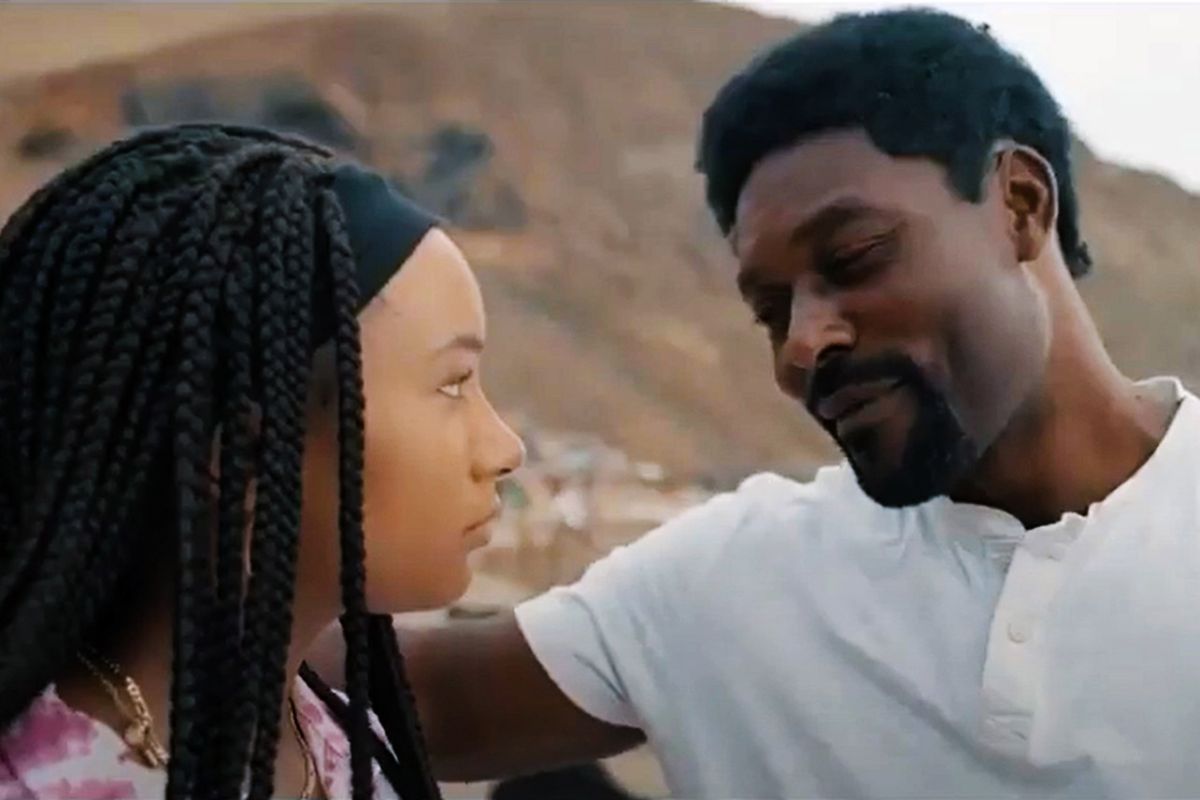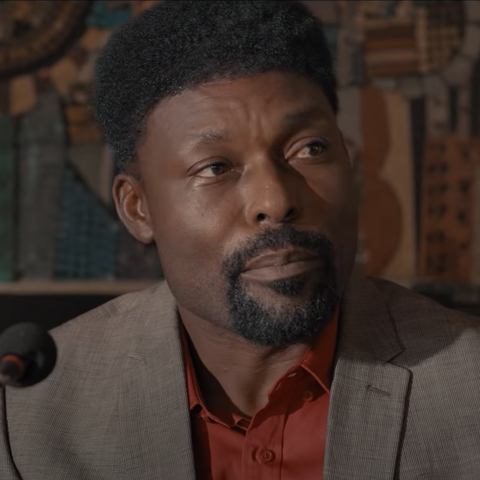Netflix’s recent Nigerian Original, Citation, is a stark representation of the menace of sexual assault and victimisation on university campuses. The movie is based on true life events, according to Netflix, which is not at all surprising considering how rampant cases of sexual assault and victimisation are around the world and especially on African campuses.
Citation is a movie that chronicles how a world-renowned and widely read academic, Professor N’Dyare, attempted to manipulate and oppress the especially brilliant Moremi Oluwa – an eager student who unwittingly becomes entangled in her lecturer’s sinister plans.
The Story
Director Kunle Afolayan sets the tone of the movie with the opening sequence of scenes. A university lecturer is heard on a call to his female student threatening to fail her if she continues to refuse to have sex with him. The student agrees to meet him at a specified hotel but shows up with her boyfriend and two other men. The men dragged the scheming lecturer from the hotel and through the dust of the streets even as they administered welting strokes of their belts on his half-clad body. The female student all the while recorded the events with her mobile phone.
Naturally, the lecturer attempts to run away from his punishers but gets fatally hit by a speeding vehicle in a swift karmic manner.

The scene cuts to the university’s Senate committee hearing where the female student and her counterparts were rusticated from the institution for the death of the lecturer. It was later revealed during the course of the movie that the rusticated students were further sent to jail for manslaughter by a magistrate court.
Onwards, from the opening scenes, Professor Lucien N’Dyare (played by Jimmy Jean-Louis), is introduced to his class of postgraduate students as a widely read, popularly awarded, and consummate academic by the Dean of Postgraduate Studies, Professor Osagie, who was clearly in awe of the charismatic young man.
Professor N’Dyare soon strikes up a friendship with Moremi Oluwa (played by Temi Otedola), a friendship that exceeded the bounds of the lecture halls, firstly into his car, as the rather young and brilliant Moremi teaches him to drive a manual car then into his home.
Temi Otedola delivers a compelling performance as Moremi Oluwa. The debutant actress gave life to the character’s sweetest and endearing qualities with the grace of a seasoned professional.
Moremi Oluwa is a young, brilliant, beautiful and unassuming female student. Her brilliance is initially highlighted when her fellow student, Mr Kwesi, reveals his admiration for how much she had been able to achieve academically at the young age of 21.

Moremi’s unassuming nature leads her to unwittingly foster a doomed friendship with Professor N’Dyare without realising she was the target of a diabolical plan by the charismatic and smooth-talking lecturer. Her bravery and strength come to the fore when she decides to bring the lustful professor to justice before the university’s Senate Committee after he unjustly victimized her for rejecting his romantic advances and even attempted to rape her.
In a society that desperately needs a dedicated crop of brave and upstanding youths, Moremi Oluwa is a refreshing character that can ignite the spark for change and the desire to make a difference in the mind of the audience. Temi Otedola, despite swimming in unknown waters just like Moremi, commendably delivers her craft in a powerful and compelling manner.
What to like
Quite frankly, there is more to like about this movie than not. Firstly, the story is a compelling tale of triumph and bravery against the odds, finely told with befitting characters and a fine interpolation of flashbacks to bring the plot to a desirable climax and eventual happy ending.

A particular scene of note is Seun Kuti’s feverish performance at a concert filled with ecstatic and gleefully dressed students as his audience – a scene anyone that passed through a Nigerian university can relate to. The director, Kunle Afolayan, renowned for his consistent attempt at doing more than his contemporaries, explores the joys and thrills of Afrobeat with the happy crowd swaying rhythmically to some of the sonorous offerings of the late Fela Anikulapo-Kuti as performed by his energetic son Seun Kuti.
Co-stars Jimmy Jean Louis and Gabriel Afolayan, who played Professor N’Dyare and Koyejo respectively, delivered convincing performances worthy of note and applause. Jean-Louis effectively reflected the charismatic and brilliant personality of the villainous Professor N’Dyare while Gabriel Afolayan is the final year medical student who is in love with Moremi. He struggles through his doubts to support her in her travails against the professor.
Even though the nitty-gritty details of the story are told in flashbacks as the Senate Committee demanded explanations from both the victim, Moremi Oluwa, and the accused, Professor N’Dyare, the progression of the story is linear enough for easy comprehension. The story is told in a compelling manner that mirrors the reality of the average female student in a Nigerian institution of learning.
When the #SexforGrades scandal hit the headlines in 2019, the sheer volume of students who claimed harrowing stories of victimisation, sexual assault, and blatant abuse of power by their lecturers were quite alarming and disheartening.

It is definitely a welcome sight to see the movie with such powerful representations lending a voice in the fight against lecturers and institutions that are culpable in the spread of this unacceptable culture in higher learning institutions. That Moremi was eventually vindicated in her struggles is a message of hope for students who are stuck in unpalatable situations and are seeking respite from incessant harassment and threats from their lecturers.
What could have been better?
Notwithstanding that the movie is a finely told story, a couple of the scenes appear to be dragged out beyond the point of interest and the movie could have maybe been a lot shorter than its current 180 minutes mark.
Also, even with a fine progression of the plot, the outcome of the movie still appears to be easily predictable. It’s a well-written story that ignites the viewers’ sympathies for Moremi Oluwa even though there was never really any point in the mildly suspenseful build-up of the plot where victory looked doubtful for the heroine. This was more or less a one-way traffic sort of viewing.
Language
The setting of the movie is essentially within the premises of reputable institutions of higher learning both in Nigeria and Senegal making the fine blend of English, Yoruba, and French languages all the more impressive. The use of language in Citation is typically elevated. Words seemed to be pronounced to reflect the originality of the “Nigerian English” while maintaining the linguistic uniformity of regular academic-speak.
Final Word
Citation is a well-thought-out drama that entertains its viewers with a deliberate sequencing of events that sustains interests in the outcome of the heroine’s struggles. The movie also bravely attempts to shed more light on legendary African figures, student culture, and of course, a realistic representation of the ills of sexual assault and abuse of power, especially in an academic environment. It most certainly is an enjoyable as well as educating watch if you have 180 long minutes to spare!


